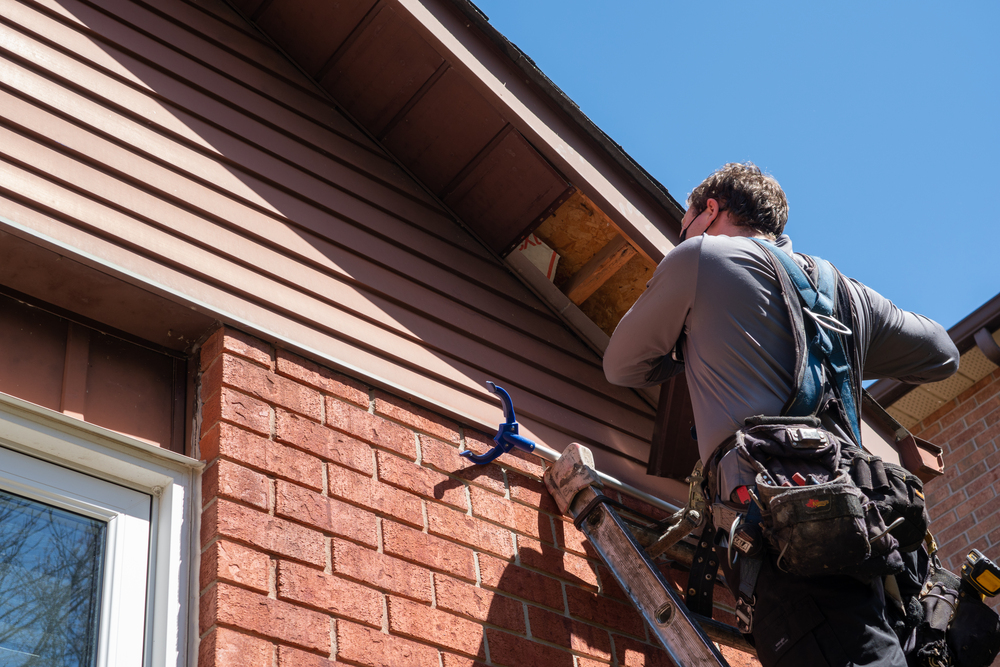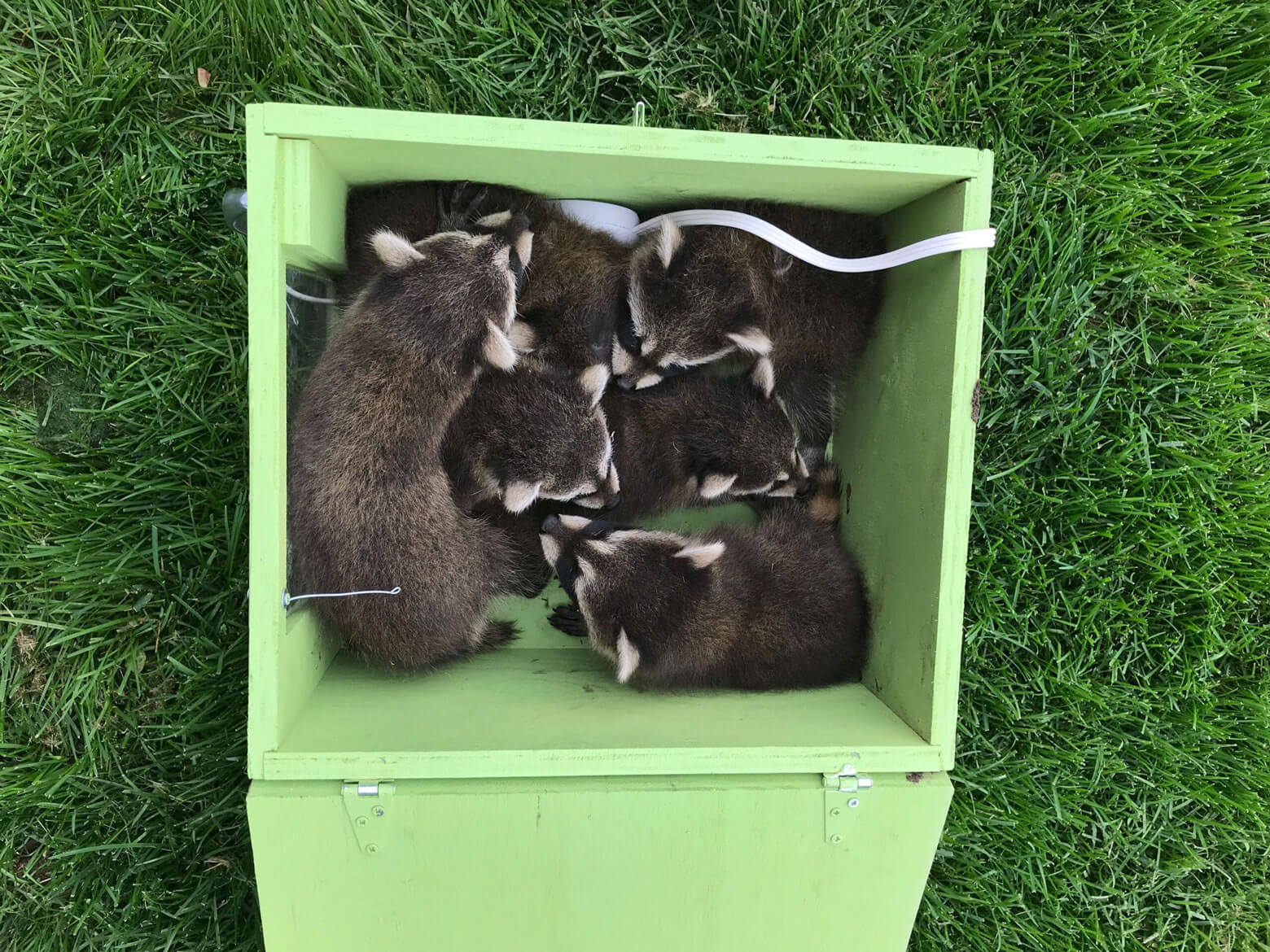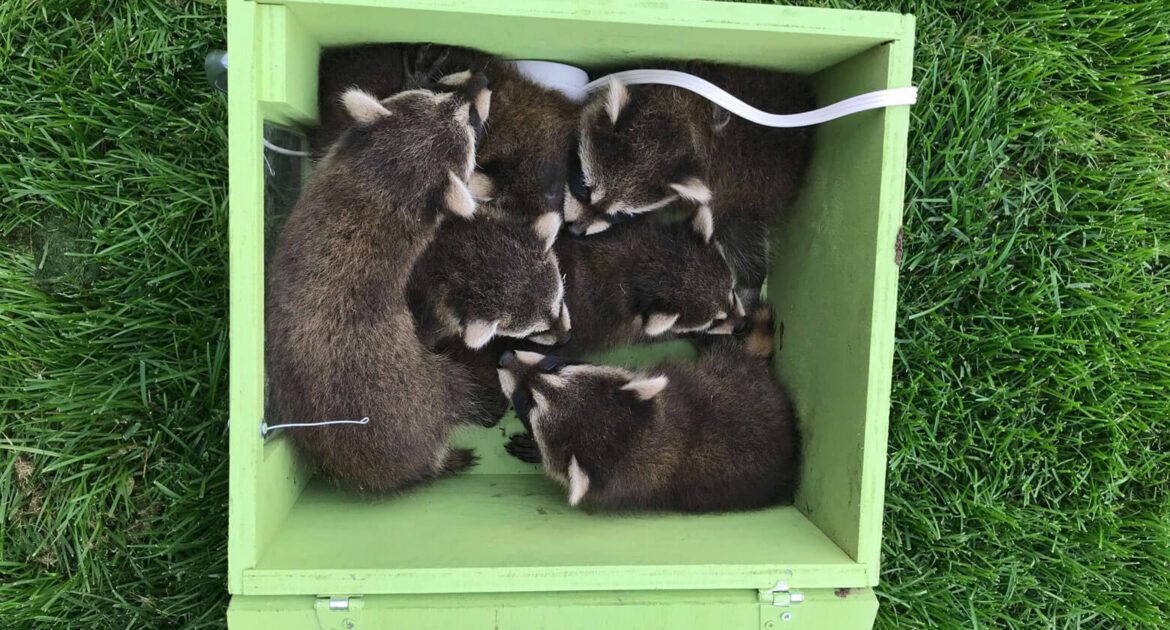When you think of raccoons, you probably associate them with their mischievous behaviors and wily ways. However, if you’ve ever had the good fortune to spot a mama with their kits, you may wonder how these adorable little creatures survive.
They owe it all to the care their mothers provide. Male raccoons are not involved in raising their offspring, so it’s up to the females to ensure their little ones grow up to be just as clever and adaptable as their mothers. If you discover a family of raccoons living in your home, contact Skedaddle for humane raccoon removal. Here are three things mama raccoons do to care for their kits.
1. Mama Raccoons Create a Welcoming Environment
Females begin caring for their little ones before they are even born. Raccoons maintain more than one den and may have as many as five or six, so they always have a place to sleep as they travel their home ranges in search of sustenance. When a female becomes pregnant, she chooses a den that can keep her kits safe.
A soon-to-be mama may decide your attic is the perfect environment for her offspring. It is secluded, out of sight from potential predators, and protected from the elements. A mother can feel relatively safe leaving her babies in your attic while she heads out to forage. Other favored den sites include:
- Tree hollows
- Underground burrows
- Basements of an abandoned building
When the kits are born, they are completely helpless, so offering them a protective space is essential. The little ones won’t leave their den for the first two months of their lives.
2. A Mother Raccoon Teaches Her Kits How To Forage
For the first two months, the new mothers nurse their young. They must consume enough food to provide for their little ones, requiring them to leave the den more frequently in search of calories. While raccoons are primarily nocturnal, you may see a mother raccoon out during daylight hours looking for another meal.
When the little ones are old enough to leave the den, mama brings them along on her foraging ventures to show them the ropes. Raccoons are omnivores. They know how to forage, scavenge, and even hunt (though they aren’t great at this). Their diets are incredibly flexible. They can, and will, eat just about anything edible. They often adapt their diets to changes in available food.
Though they have flexible diets, mama raccoons still need to teach their young how to get the food they need to survive. She shows them what is easiest to get their paws on, but she also demonstrates how to get a hold of harder-to-access meals. Urban raccoons quickly learn that human gardens are bountiful, and most trash cans are easy to break into!
3. Mama Raccoons Don’t Kick Their Little Ones out too Soon
Raccoons are generally solitary creatures. They may den together in the winter to keep each other warm. The other exception is for raccoon mothers. They stick with their little ones for a while. Raccoons are smart, and the kits learn how to fend for themselves early in life.
However, a mother does not make her little ones leave the den before they are ready or until the next breeding season. Families often den together for a year. Males sometimes leave home sooner but may begin their independent lives by making a den not too far from their mother.
Raccoon Families Require Care in Raccoon Removal

If you have a family of raccoons denning in, under, or around your home, contact Skedaddle for humane wildlife control in Madison. Mother raccoons are very protective of their little ones, so they can become aggressive when they feel their babies are threatened. Removing families requires special techniques and skills to keep mama, babies, and you safe. Contact us today to find out more about our services.




